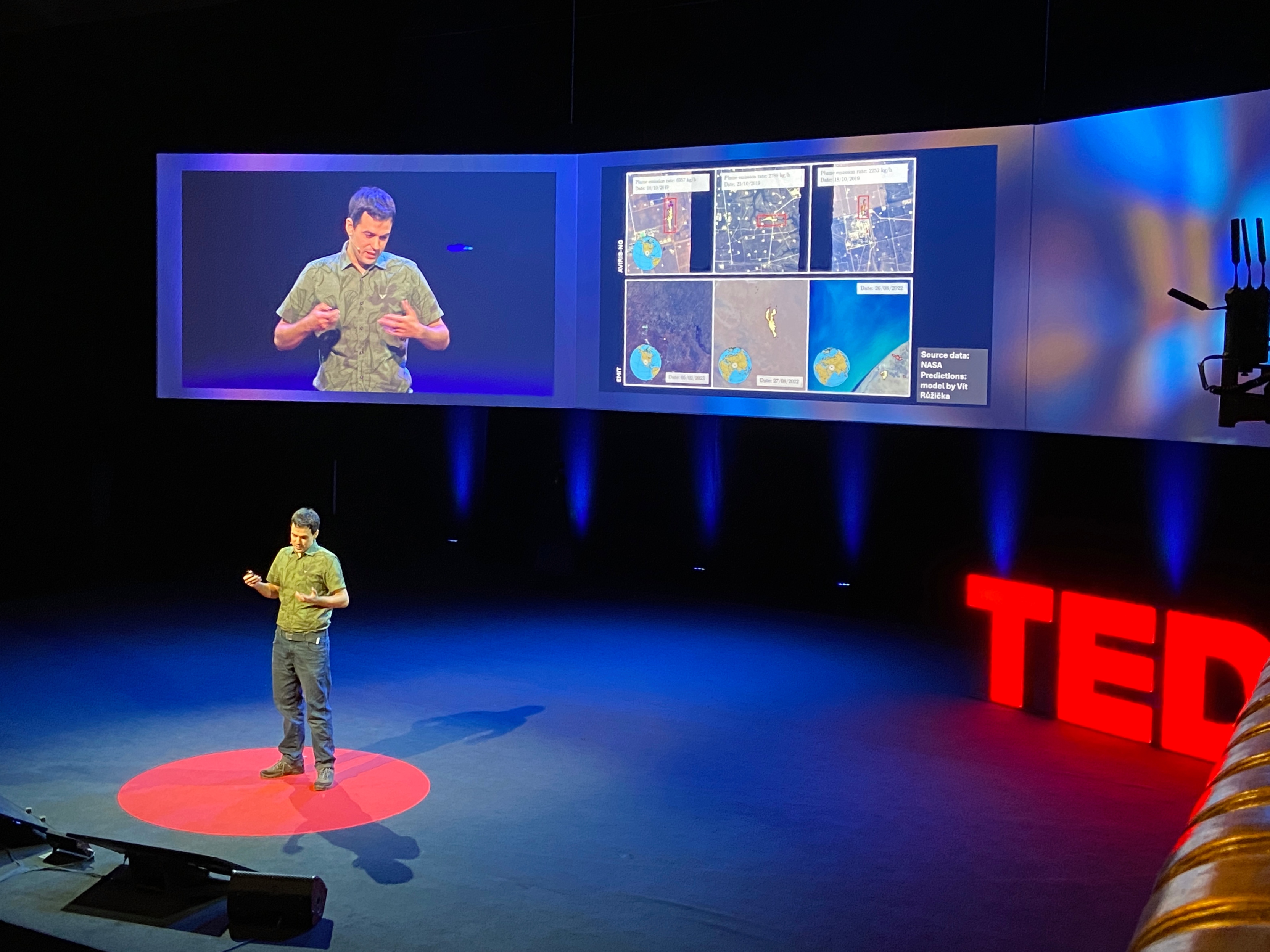Oxford Computer Science DPhil student presents at Europe's first TED conference on AI
Posted: 21st October 2024
DPhil student Vít Růžička presents a TED Talk at Europe's first TED conference on AI, TEDAI in Vienna
Over two days (18 and 19 October 2024), Europe hosted its first TED event to celebrate groundbreaking ideas at the forefront of AI innovation. TED is dedicated to researching and sharing knowledge that matters through short talks and presentations, to inform and educate global audiences in an accessible way. TED AI was billed as ‘an exploration of a shared future that is liberated, not limited by technology, designed to ignite curiosity, spark critical thinking, and inspire hope’.
On the TED Talks Day, the latest AI advancements were presented across 20 TED Talks - TED Talks present a great idea in 18 minutes or less. DPhil student Vít Růžička, presented a TED Talk called ‘Machine learning on-board of Satellites for Methane detection’.
Speaking at the Europe's first TED AI conference in Vienna was very exciting. It was a great opportunity to share the research I was developing through the four years of my DPhil with general audience and to see that people react and care about it. But I won't lie, it was a little bit scary to step onto the stage. Department of Computer Science DPhil student Vít Růžička

Vít Růžička spoke about his research on methane detection using Machine Learning models on-board of hyperspectral satellites. The research brings together Machine Learning and applied research in the domain of remote sensing (the science of obtaining information about objects or areas from a distance - typically from aircrafts or satellites), whilst being designed to work with the low-compute hardware of real-world satellites.
The primary motivation for this research came from the need to automatically detect methane leaks, as methane is one of the largest contributors to climate warming. The Intergovernmental Panel on Climate Change (IPCC) Sixth Assessment Report states that we need to significantly reduce methane emissions as methane is 84 times more potent than carbon dioxide. Detection of a methane leak from oil and gas infrastructure is important as the fixing of individual leaks is relatively easy. Undetected leaks are the issue.
Current detection methods rely on manual detection by domain experts as they tend to include many areas that aren’t methane leaks (these are known as a confounder - for example solar panels, some rooftop materials or infrastructure). The domain experts must perform a manual analysis to distinguish between a true plume and a confounder, which isn't practical and cannot be scaled with the expected increase in the number of hyperspectral satellites.
The Machine learning models Vít Růžička’s research proposes are adapted to specific properties of hyperspectral data (namely their high spectral dimension) and have significantly improved detection capabilities than prior methods. They can also be used on other types of tasks with this kind of data, for example, detection of other faint gas signatures or for tasks such as mineral identification from Space.
Vít Růžička’s TED Talk was based on the research presented in his DPhil Thesis and his last published paper which was selected as one of Nature’s Journal Top 100 of 2023, you can read more about it in this news item: https://www.cs.ox.ac.uk/news/2218-full.html
Find out more about TEDAI on the TEDAI website: https://tedai-vienna.ted.com/.
You can watch Vít's TED talk on the TED website.
Editor's note: This article was amended on 5 March 2025 to add a link to watch the TED talk.
